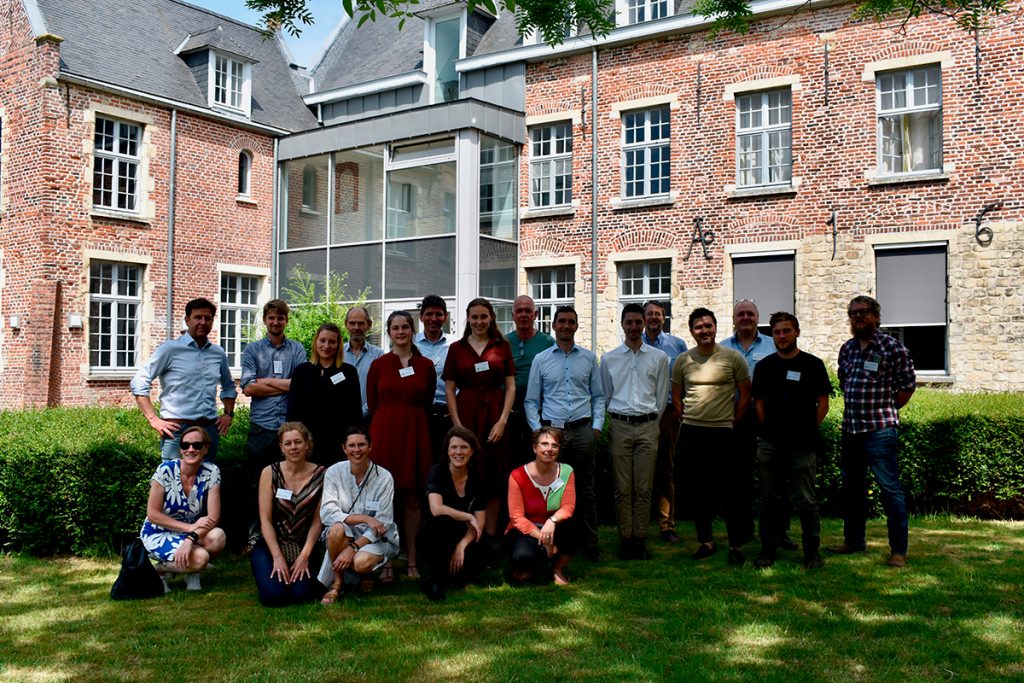Potential for bio-based fertilisers in regional food systems
Global stakeholder workshop on circular bioeconomy and food smart cities.
KU Leuven, Rikolto and CIAT bundled forces to organise a workshop on the circular bioeconomy and food-smart cities. The workshop took place on the 18th of May, at the Irish College in Leuven. 22 experts discussed the challenges and opportunities of both bio-based fertilisers and regional food systems. The workshop was organized within the frameworks of the H2020 project RUSTICA and the Food Smart Cities cluster of Rikolto.
The sustainability of our food system is high on the political agenda. Challenges related to climate change, natural resources, urbanisation and food security put pressure on policy makers, private companies, public authorities, non-governmental organizations and consumers to take action. Despite all valuable work on the ground, often at regional level, stakeholders focus on their own environment and networks to develop solutions. Opening up the debate can leverage more innovative and efficient actions by strengthening the dialogue and building novel collaborations.
The global stakeholder workshop on circular bioeconomy and food smart cities brought together diverse actors in the food system: researchers, representatives of private companies, farmers, NGO’s and policy makers. Such dialogue is needed to align ambitions among stakeholders and find common ground for collaboration and innovation. For researchers, this dialogue serves as a reality check to focus their ongoing and future activities; it can also facilitate future uptake of insights and innovations by actors in the food systems.
At all levels – regional, European and global – stakeholders in the food systems face enormous challenges. Some of the challenges, such as a disruption in the supply or prices of agricultural inputs, for example due to geopolitical crisis, request for immediate action. Other challenges, such as climate change, food security for a growing population, and depletion of non-renewable resources, drive companies to rethink their long-term strategies. Simultaneously, policy makers put forward strategies and visions to develop a more sustainable food system.
On the ground, we notice that the ambitions of policy makers, the reality of the market, and the work of research teams is not always aligned. This holds for example in the case of the development of bio-based fertilisers. Whereas the Farm to Fork strategy emphasizes Europe’s ambition to make a shift from chemical fertilisers to bio-based alternatives, legislation lacks behind. Furthermore, researchers are exploring the development of bio-based fertilisers, yet overlook the social and economic bottlenecks of farmers to implement new products. Such bottlenecks go beyond a competitive price as compared to the current fertilisers. One also needs to account for convenient use and adequate services.
Another issue discussed during the workshop concerns the cooperation between research teams. All across Europe, consortia are active on enhancing the circular bioeconomy. They face similar challenges and bottlenecks. A better cooperation would increase the efficiency of research and speed up innovations.
Finally, the international profile of the experts allowed to reflect on the global perspective of a sustainable food system. Key players in the food system operate at a global level, and not just at regional or European level. Making the food system more sustainable requests a global perspective. For example, a strict regulation on the use of inputs in agriculture for European farmers should go hand in hand with adequate control on inputs imported from outside Europe. Also, the impact of regulation in Europe on the global food production should be taken into account.
The organizing team concludes that the workshop met its objectives, being a key step towards multi-stakeholder dialogue and promoting exchange of knowledge and experiences at international level. The organizing team will take the lead in summarizing the common perspectives of the participants and formulating the priority actions that are worth to be shared with public and private sector policy makers.
KU Leuven, CIAT and Rikolto explicitly express their gratitude to all experts participating in this workshop.


